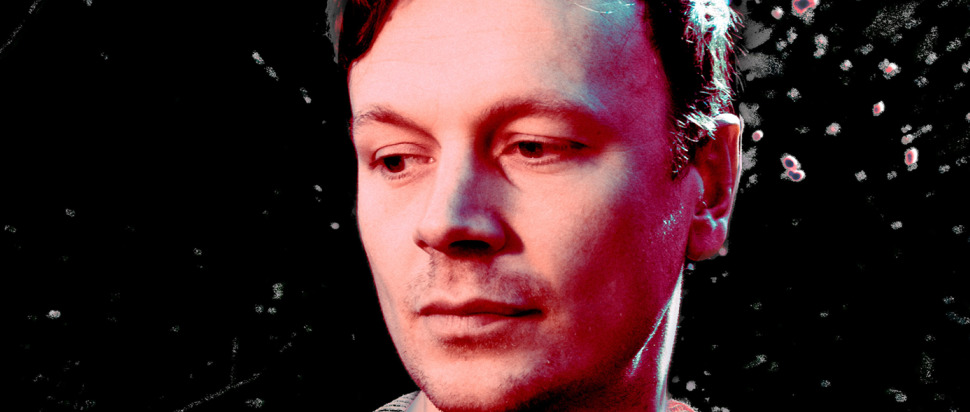The Bagpipe Stereotype: Cain talks Celtic tunes
Decades after being crowned the junior worldwide bagpipe champion, CAIN combines Celtic traditions and electronic music on his debut album
Celtic traditions and electronic music culture haven't historically crossed paths, particularly for CAIN – the dance music alias of Duncan Grant – a bagpipe prodigy who snagged the junior world championships as a teen. After determinedly dropping a string of work soon championed by Ben UFO and Gilles Peterson, he hung up his sporran and hit the European club circuit. Over a decade later, the Highlander's debut album Lineage arrives 19 Jun, championing Celtic musical traditions beyond the ceilidh session.
The Skinny: How have you been spending time since wrapping your debut album?
CAIN: My full-time day job is in London with the National Youth Orchestra, so I'm always trying to balance writing tunes with that. But I'm currently prepping for a show at Glastonbury with my bagpipe MIDI controller.
A bagpipe MIDI controller?
It's this thing called a Blair chanter. It's basically a bagpipe chanter but has all these light sensors, and you can plug it into any synth and control any sound you want with it.
Probably not something you see much in London.
It's funny... Since living in London, I've felt more Highland than I ever did back home. I think because the city is such a melting pot, you naturally end up talking about your own culture more here.
What was the culture like growing up at home?
I'm from Errogie on the south side of Loch Ness, so every summer, I was rolled out as the kid piper at the Abernethy Games to pipe in the chief, and afterwards I would listen to hip-hop records in the evening. It was frustrating because it felt like the people in each of these scenes didn't understand what I loved in the other... it was like two separate worlds.
How often do you play the pipes now?
Pretty much every day... If you grow up doing something all the time, it just becomes part of your identity, so it feels weird not to be doing it. I feel guilty if I haven't had a tune that day, you know? Like I've done something wrong. It's just kind of instilled in me – my dad was a piper.
What does he think about the album?
I think he's still scarred by me stopping competitions, so he tends to be quite dismissive and doesn't really listen properly, which is frustrating. It's one of those lifelong quests to impress your dad kind of thing, but I think he's gradually coming around to it, particularly because I was working with Celtic musicians like Brìghde Chaimbeul, who wrote a tune for him when she was 13.
That's quite the full circle moment. Why did you wait until now to merge the two styles?
In a way, I had a desire to do something like this before I even wrote any music, but I just didn't know how until now. I wanted to work with Gaelic music traditions but present them in the style in which I write music as CAIN. I've worked with African and Indian artists in the past, and they have amazing musical traditions, so with this album, I want to show people the musical traditions that I grew up with.
What do you think about the purism argument?
There's a balance between keeping musical traditions alive and learning that they constantly evolve. If you look at music forms from areas of Africa, like batida and kuduro and Angolan sounds in Lisbon versus the global popularity of more Ghanaian and Nigerian style Afrobeat, it's very much a living tradition, isn't it? There is a space for Celtic purists, but there's also space for the tradition to interact with Puerto Rican reggaeton rhythms and see what can come out of that meeting point – it's exciting.
Why do you think there's a lack of music sampling Celtic sounds globally?
The problem I felt I was up against was that it's relentlessly pigeonholed as chirpy and upbeat. You know, you can mix an upbeat jig with a house beat, and it sounds pretty cringey, but that's missing 90% of Celtic and Gaelic music.
How did you differentiate between these styles in the album?
I wanted to make something about the feelings of different landscapes in the Highlands, and if you think back to the clan days, they each had their own idiosyncrasies and ways of living off the land. I think it's interesting to think back to what it would have been like in the 16th or 17th century and what part you would have played in this long line of traditions.That’s why I called it Lineage.
What part do you want to play in the lineage?
I want to be an ambassador for Highland music and to show it's more than just a cliché. The population of Inverness is going up – but mainly because it's a nice place to retire – and some of my biggest tunes, like Nagan and Eshu were written from the Highlands, completely cut off from any scene... I just had to use my imagination.
Lineage is released on 19 Jun via Fine Grains Records
